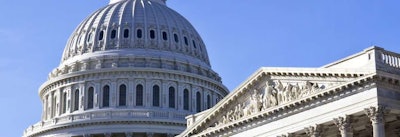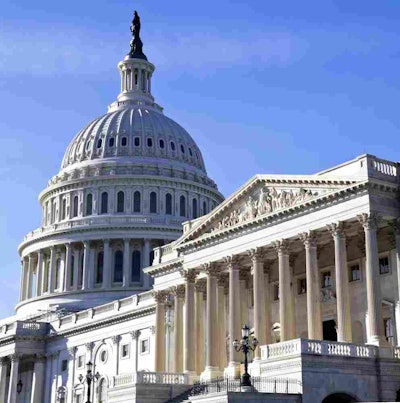

Early Tuesday morning, the Senate passed the measure 89-8. Late Tuesday night, the GOP-run House of Representatives approved the measure 257-167. Among House Republicans the vote broke down 151-85, the Associated Press reports.
In a poll run by Equipment World, 77 percent of readers who responded said they were concerned about the implicaitons of the fiscal cliff.
As late as Monday night, officials were unsure whether any compromise at all would be reached. Indeed, passage of the bill, crafted by Senate Minority Leader Mitch McConnell, R-Kentucky, and Vice President Joe Biden, came nearly a full day after a decade’s worth of tax cuts for millions of Americans expired.
While the majority of Americans will see these tax cuts continue, the new deal would boost the income tax rate to 39.6 percent for incomes exceeding $400,000 for individuals and $450,000 for couples, the AP reports.
Had the tax cuts, implemented by former President George W. Bush, disappeared completely, taxes would have been raised by more than $500 billion in 2013. With the still-fragile state of the U.S. economy, the combination of those tax increases and the $109 billion in defense and spending cuts on tap for the new year, became known as the “fiscal cliff.”
For months, construction industry experts like Associated General Contractors of America chief economist Ken Simonson focused on the importance of avoiding the fiscal cliff. The AGC noted in December that the threat of the fiscal cliff was already having an impact on construction employment in most states.
A survey the Association ran found that 54 percent of construction business owners had made business decisions based on the threat of the fiscal cliff.
The AGC found that 32 percent had already reduced their workforce; 67 percent had postponed hiring; 41 percent had postponed or cancelled an anticipated expansion and 65 percent had postponed or cancelled a capital expenditure.
UPDATE: Simonson tells The Sacramento Business Journal that he expects a “double-digit” increase in construction spending in the next few months thanks to the fiscal cliff deal. “Last night’s passage of a tax bill should encourage many businesses to go ahead with projects they have held in reserve,” he said.










